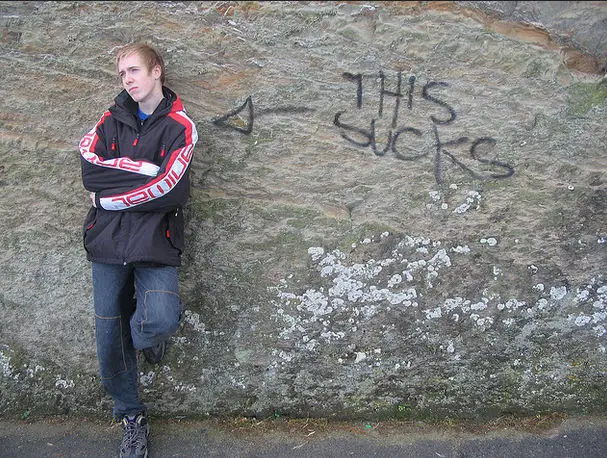Schools on the Isle of Wight are dishing out more and more exclusions to pupils, new data has revealed.
On average five children were excluded from schools on the Island on every school day last year.
The revelation comes after a warning from MPs that parents and children are having to contend with a “scandal of ever-increasing exclusions” in a system that is like the “Wild West”.
Over 1,000 exclusions
In the 2016-17 academic year, schools on the Isle of Wight handed out at least 1,030 exclusions, according to data from the Department for Education.
Each excluded pupil received an average of 2.3 exclusions over the school year, and lost around four days of teaching apiece.
Rising numbers
The number of exclusions represents an increase of 9% from the previous year when 943 exclusions were recorded.
This is despite the fact that the population of the Isle of Wight’s schools shrunk between 2015 and 2017, meaning exclusions are now far more prevalent relative to the number of school children.
Not just teenagers
The majority of the exclusions in 2016-17 – 877 of them – were in secondary schools, with 127 in primary schools and 25 in special schools, which cater for pupils with special education needs or disabilities.
This equated to a rate of 12 exclusions per 100 pupils in the Island’s secondary schools.
The most common reason for a child to be excluded from a school in the Isle of Wight was for persistent disruptive behaviour, which accounted for 29% of exclusions.
National comparison
In England, exclusions numbered around 389,600 in 2016-17, up from 346,000 the previous year.
This represents an increase from 4.4 exclusions per 100 pupils to 4.9.
Report found “pupils are punished and ultimately excluded”
Ministers from the cross-party House of Commons education committee last week published a highly critical report on the current exclusions system in England.
A rise in “zero-tolerance” behaviour policies may mean that “pupils are punished and ultimately excluded” for incidents that “could and should” have been better managed, the report stated.
“Lack of moral accountability”
The MPs also criticised a “lack of moral accountability” among many schools which have little incentive to keep on students that are seen as “difficult or challenging”.
Committee chair Robert Halfon MP said:
“Today, we face the scandal of ever-increasing numbers of children being excluded and being left abandoned to a forgotten part of our education system which too often fails to deliver good outcomes for these young people.”
Mr Halfon and his fellow committee members are calling for a “bill of rights” for pupils and their parents, which will include a commitment that schools do not rush to exclude pupils.
DfE: Exclusion should be last resort
A spokesman for the Department for Education said:
“Schools should only use permanent exclusions as a last resort but we do support teachers in taking proportionate and measured steps to ensure good behaviour in schools.
“Whilst we know there has been an increase in exclusions there are still fewer than the peak ten years ago.
“We recognise some groups of pupils are more likely to be excluded than others which is why we launched an externally-led review to look at how schools are using exclusions and why certain groups are disproportionately affected.”
Article shared by Data Reporter as part of OnTheWight’s collaboration with Press Association and Urbs Media
Image: Watt Dabney under CC BY 2.0





